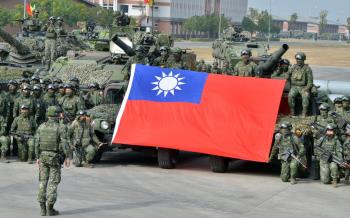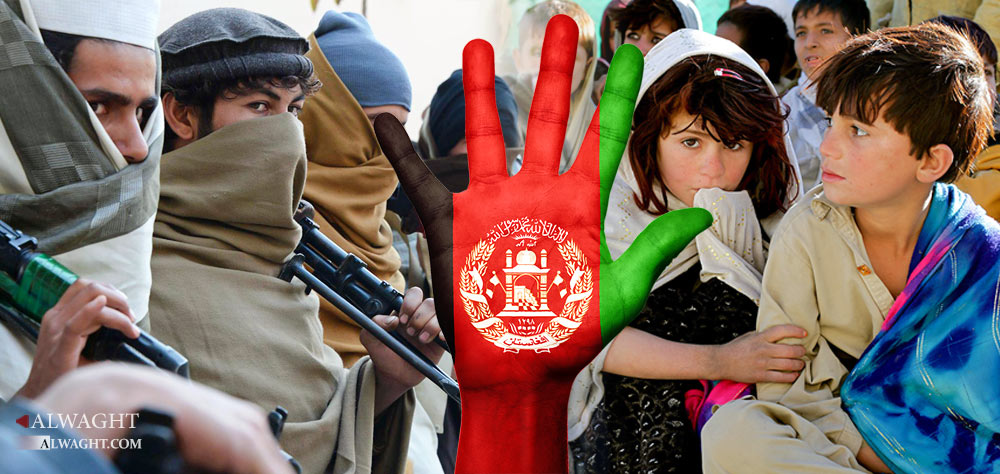Alwaght- Barbaric crimes happened in Badakhshan, Kunduz, Zabul, Ghazni, Nangarhar and other provinces of Afghanistan. Severe poverty struck the Afghan people. Youth, instead of schools and colleges, headed to European countries and took refuge. The passengers were hold hostage, and the highways were converted to death tunnels and many innocent women and children were brutally slaughtered. Severe confusion and inconsistency in government agencies had challenged large and timely decision-making process. Despite the efforts of the government, peace process reached a dead end. Corruption, not only did not disappear, but also spread in an unprecedented manner.
For the Afghan people, last year was the year of brutal murders, sufferings and overwhelming torture. The people of Afghanistan passed the last year dealing with many difficulties. These difficulties, at least in social, economic and security aspects, were associated with bitter memories.
Over the past year, the Islamic Republic of Afghanistan experienced many good and bad ups and downs. The opening of the TAPI project, Afghanistan's membership in the WTO, increased customs revenue, military aids from India, inauguration of the new buildings of the Ministry of Defense and the Parliament were among the good events. On the other hand, there were unprecedented and sad news; for the first time the country's major provinces (Kunduz and Helmand) were on the verge of collapse. Intense armed conflicts throughout Afghanistan, the failure of the peace talks, spreading insecurity, terror and suicide-bombings, unemployment, loss of human and material capitals, and more importantly, political distrust were among the unpleasant events which represents an undesirable future for Afghanistan.
Upon the formation of the national unity government, the United States signed a security pact with the Afghanistan government in which the United States was required to help Afghanistan if the country is threatened or is subjected to external attacks. Mohammad Ashraf Ghani and Abdullah Abdullah, despite their promises for justice and development in Afghanistan, failed to even partially fulfill the popular demands. Now more than 30 percent of Afghanistan is in the hands of the Taliban. In Afghanistan, since the invasion of the US, under the pretext of fighting terrorism (in 2001, after the explosion of the Twin Towers), the situation has been worsened. Over the past year, almost 92,000 government security forces were killed or wounded in the fight against Taliban and other terrorists groups. In October 2015, President Barak Obama in a serious tone announced that the US military forces would stay in Afghanistan by 2017. According to Obama's decision, the US troops not only will train Afghan security forces, but also will participate in military operations. This is despite the fact that Obama has been forced to break his promise of withdrawing all US troops from Afghanistan and Iraq by the end of his presidential term.
Over the past year, Taliban has also been facing with difficulties and division. Mullah Akhtar Mansour, the new leader of Taliban, due to removing his domestic rivals, faced fierce criticism from religious leaders affiliated to Pakistan. Division in ranks of Taliban has paved the way for emergence of Al-Qaeda and ISIS, and these two groups are likely to win significant political achievements, after seizing control over Helmand province which is the major center for growing opium.
Late last year, a strong opposition was formed including former ministers, some Jihadi leaders, a number of warlords, nationalist businessmen, and Hamid Karzai the former President of Afghanistan, which will probably oppose Ashraf Ghani. However, Ashraf Ghani granted the first concession to the opposition, and on the basis of their demands, the parliament and provincial council elections were postponed to next year.
Internal rivalries within the government, and the competitors’ efforts to marginalize the government, hindered the implementation of the national unity government's political program. Widespread corruption in governmental institutions, has made way for market recession and broadening the scope of poverty among the people. The state budget is about $ 7 billion, of which 5 billion is the regular budget. Nevertheless, for a country with a population of more than 32 million, it is too little.
The start of a project called TAPI (The Turkmenistan-Afghanistan-Pakistan-India Natural Gas Pipeline) and laying the gas pipeline from Afghanistan to Pakistan, India and Turkmenistan is important for the four countries in terms of economic cooperation and security aspects. Although the project is facing serious challenges, the needs of the countries involved, may ensure the implementation of the project. Provided that the government of Afghanistan seriously staves off corrupt political figures, economic and terrorist mafias, and terrorist groups.
It seems that all these ups and downs, on the one hand, have frightened the people, and at the same time have made them be hopeful of a better and brighter future. The main demands of Afghan society are security and job-creation. In the latest annual survey of the Asia Foundation, the overall level of stabile security throughout the country was 42.7% and the level of unemployment was 31.2%.
National Unity Government in 2016
In the first days of 2016, Kabul the capital of Afghanistan was hit by a terrorist explosion. The accident shows that the coming year is accompanied by difficulties for the people of Afghanistan. However, considering the summit between ‘Afghanistan, China, the US, and Pakistan in January some analysts believe that negotiations with Taliban would begin in near future; however, as the evidence suggests the negotiation efforts are unlikely to bear a fruit, at least within the next few months. Peace negotiations are still in initial stage. In other words, they want to begin a process whose result is to bring Taliban in to negotiation table. This process has not yet begun, and for this process to begin, a road map is quite essential.
Afghanistan entered the New Year while the threats still remain, and the government has failed to provide a more clear vision on security, economic and political conditions. Meanwhile, the national unity government is in a fragile situation in politics, security and economics. It seems that in the upcoming days, there might be some disasters and difficulties that may inflict the unfortunate people and government of Afghanistan.
For sure, in the coming days the advance of the Taliban in Afghanistan would draw the attention of countries. ISIS is also likely to increase its circle of influence in Afghanistan, but extremist terrorist groups of the region, especially ISIS, would be under greater international pressure; thus, it will probably lose important parts of its possessions in Iraq and Syria. However, these advances would be slow, and the spread of terrorist groups to other regions, including Afghanistan as the most important future base of the extremists, would constitute a threat to Afghanistan, the region and the international community.



























